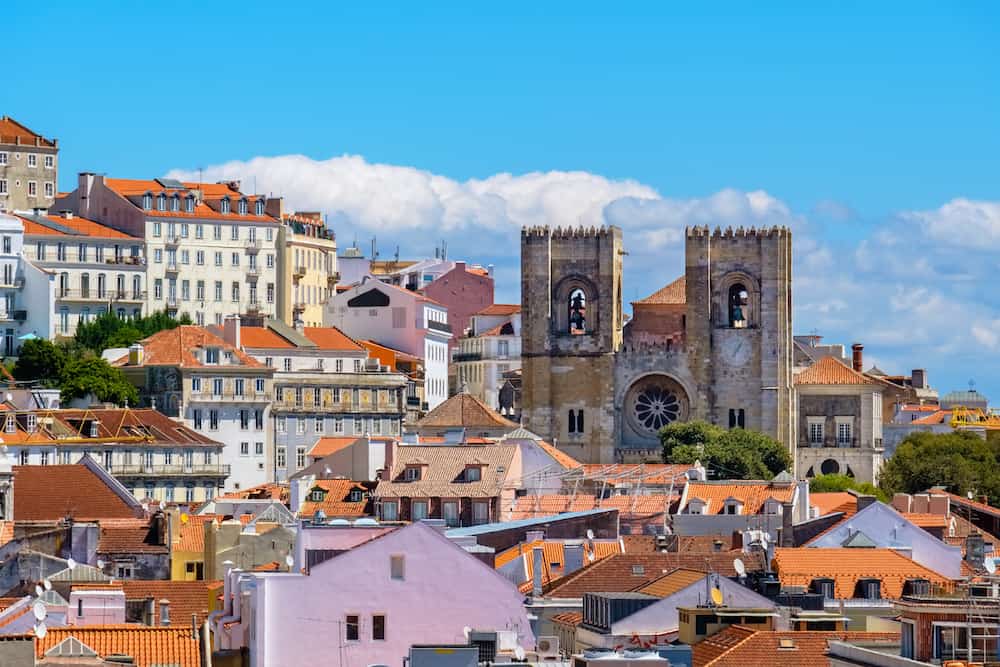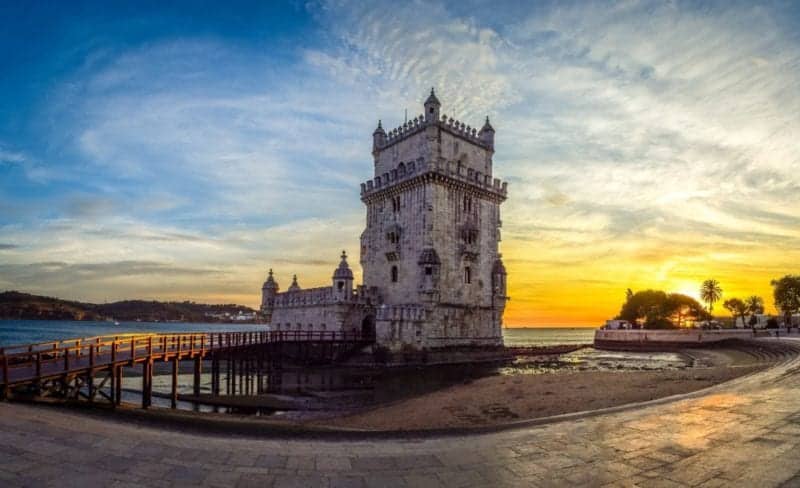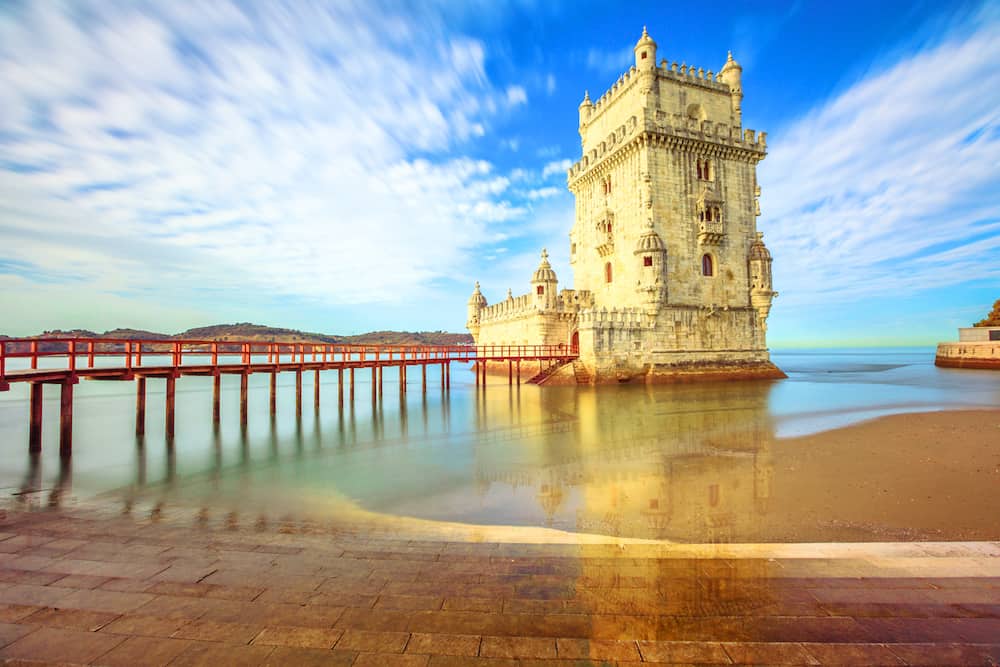Is Portugal a good place to live?
Sunny Portugal, with its warm, orange tones and natural beauty, is a loved country by many worldwide and for good reason, but the question we are all asking starts with, “Is Portugal a good place to live?”
If you have wondered, “Should I move to Portugal?” for some time, you should jump on the relocation train and get going. Below is a list of living in Portugal pros and cons.
After looking at the last few years statistics, moving to Portugal became a massive trend shortly after the Brexit ordeal, especially when Portugal decided to open its doors to British residents looking to become a part of the EU when the Portuguese government created a Golden visa program to address the lack of affordable housing in the country.
Many went flocking to the land of Port Wine with the hope of a new life under the sun and close to a golden coast. It wasn’t a tough decision for British locals and other foreigners since there were only so many bad things about living in Portugal, and it took little time.
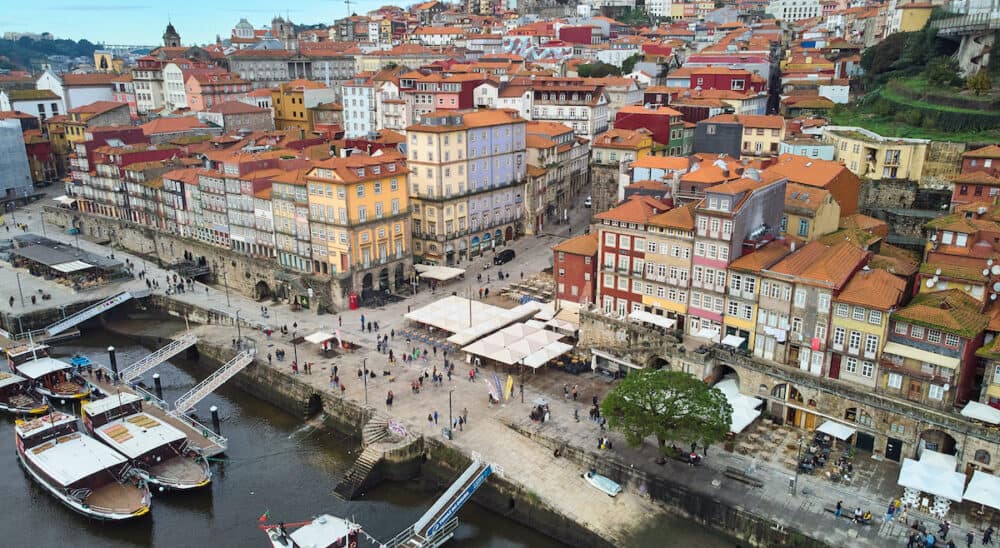
Compared to its UK neighbour, the quality of life in Portugal is high above the general standards, and the Portuguese people make it easy to settle in, find friends and join a community.
Places like Lisbon, Lagos and Porto have been popular destinations to settle down in since they each have their own set of characters and visiting them and other areas of the country is an easy train ride away.
Did you know that Portugal ranked 7th in the Global Peace Index 2023? That means that Portugal made it to the top 10 of the most peaceful countries in the world.
They are not wrong about the heartfelt feeling of fully embracing Portugal’s relaxed lifestyle; imagine sunset strolls along coastal boardwalks, sipping on wine while local musicians play their magic. Long drives over rolling hills or simple moments admiring historical architecture in famous Lisbon.
Are you still left wondering what the pros and cons of living in Portugal are? Below are detailed reasons for people’s decisions to move and whether it suits your agenda.
Plan your trip
Save on fees abroad with the Wise Card—use it at ATMs, restaurants, and for flights or hotels in over 150 countries. Manage 40+ currencies in real-time with the Wise app.
Need Help Planning?
- Cheap Flights: Find the best deals.
- Accommodation: From hostels to luxury stays.
- Car Rental: Affordable options worldwide.
- Sightseeing Tours: Explore without breaking the bank.
- Travel Adapter: One adapter for all your needs.
- Travel Insurance: Don’t risk it—stay covered.
This post includes affiliate links. Read my full disclosure and content policy.
Cost of Living
“Is it expensive to live in Portugal?” Would you be surprised if I told you that Portugal is one of the cheapest European countries? Its affordable cost and easy-going Portugal lifestyle is one of the main reasons people are so interested in moving there.
The cost of living in Portugal can vary depending on where you choose to live within the country. Significant cities like Lisbon and Porto tend to be more expensive than smaller towns and rural areas, but they are still great options compared to their neighbours.
In 2023, the average cost of living came to about €1,608 per month, a vast difference from other Western European countries, adding to the growing list of benefits of living in Portugal.
Pros
- Affordable Housing:
Compared to many Western European countries, housing costs in Portugal are relatively reasonable, especially in smaller towns and rural areas. Renting an apartment or buying property can be more affordable than in cities like London or Paris.
- Food and Dining:
Grocery prices in Portugal are generally lower than in many other European countries. Eating out is also affordable, with a wide range of dining options to suit different budgets.
- Transportation:
Public transportation in Portugal is efficient and reasonably priced, particularly in urban areas. The cost of fuel is also relatively low.
- Healthcare:
Portugal has a high-quality healthcare system that is accessible to residents and relatively affordable compared to many other countries. Expatriates can often join the healthcare system by paying a monthly fee.
- Education:
Public education in Portugal is free up to the university level for residents. There are also many international schools available for expatriate children.
- Entertainment:
Portugal offers many affordable entertainment options, from cultural events and festivals to outdoor activities like hiking and beach outings.
Cons
- Salaries:
Wages in Portugal tend to be lower than in some other Western European countries. If you’re planning to work in Portugal, your income is lower.
- Taxes:
While Portugal’s tax system is relatively straightforward, it can be burdensome for higher earners, with progressive income tax rates.
- Inflation:
In recent years, inflation in Portugal has increased, affecting the overall cost of living, particularly in urban areas.
- Utilities:
Utility costs, such as electricity and water, have risen, which can be relatively high in some regions.
- Imported Goods:
Imported goods and luxury items can be more expensive due to taxes and import duties.
- Bureaucracy:
Dealing with bureaucracy and administrative processes in Portugal can be time-consuming and occasionally frustrating for expatriates.
- Language Barrier:
While many Portuguese people speak English, especially in urban areas, some regions may have a language barrier, which can be challenging for newcomers who need to speak Portuguese.
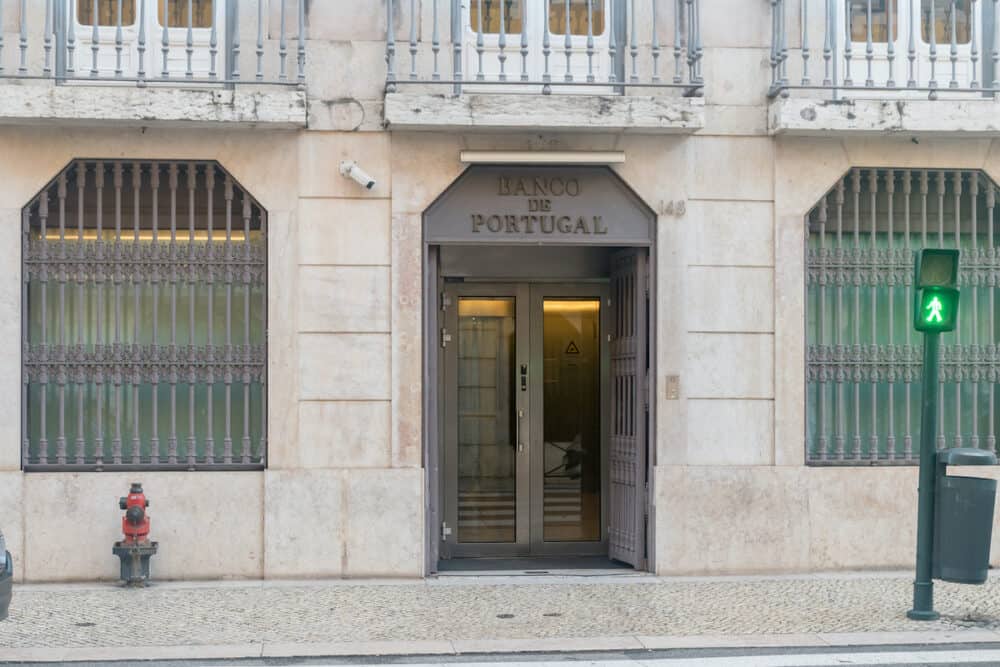
Infrastructure
Portugal has a relatively well-developed infrastructure, with modern amenities and solid transportation networks, providing a great safety net for a better quality of life for you and your family if you decide to move there.
You can expect the infrastructure to have the same standards and quality as any other Western European country. Still, funny enough, it was very far from even an average standard before it became a part of the United Nations.
Portugal has been ranked 4th as the country with the best roads in the world and 25th in its overall infrastructure, making life in Portugal well-structured and easily accessible.
Pros
- Transportation Networks:
Portugal has a well-maintained transportation network, including highways, railways, and airports. Significant cities like Lisbon and Porto are connected by modern roads, making it easy to travel within the country. There’s also an extensive public transportation network in urban areas, including buses, trams, and metro systems.
- Airports:
Portugal has several international airports, with Lisbon Portela Airport and Porto Airport being the largest and busiest. These airports offer excellent connectivity to Europe and other parts of the world.
- Port Facilities:
Portugal has a strong maritime tradition, and its ports, such as the Port of Lisbon and Port of Leixões, are well-equipped for shipping and trade, which is particularly advantageous for businesses engaged in import/export activities.
- Energy Infrastructure:
The country has a reliable and efficient energy infrastructure, with a mix of renewable energy sources, including wind and solar power, contributing to its electricity generation.
- Telecommunications:
Portugal has a robust telecommunications network with widespread access to high-speed internet and mobile coverage.
- Public Services:
Access to public services like healthcare and education is generally good, with well-equipped hospitals and schools nationwide.
Cons
- Regional Disparities:
While major cities like Lisbon and Porto benefit from excellent infrastructure, rural areas may experience disparities in terms of transportation, healthcare, and education facilities.
- Traffic Congestion:
Significant cities like Lisbon and Porto can experience traffic congestion during peak hours, leading to longer commute times.
- Public Transportation Costs:
While public transportation is efficient, some expatriates may find it relatively expensive compared to other countries, particularly for daily commuting.
- Maintenance Issues:
Some rural roads and highways may need to be better maintained, leading to occasional potholes and other road-related issues.
- Digital Divide:
While urban areas have access to high-speed internet, some rural regions may have limited connectivity, contributing to a digital divide in the country.
- Natural Disasters:
Portugal is susceptible to natural disasters like wildfires and occasional flooding, which can disrupt infrastructure and transportation.
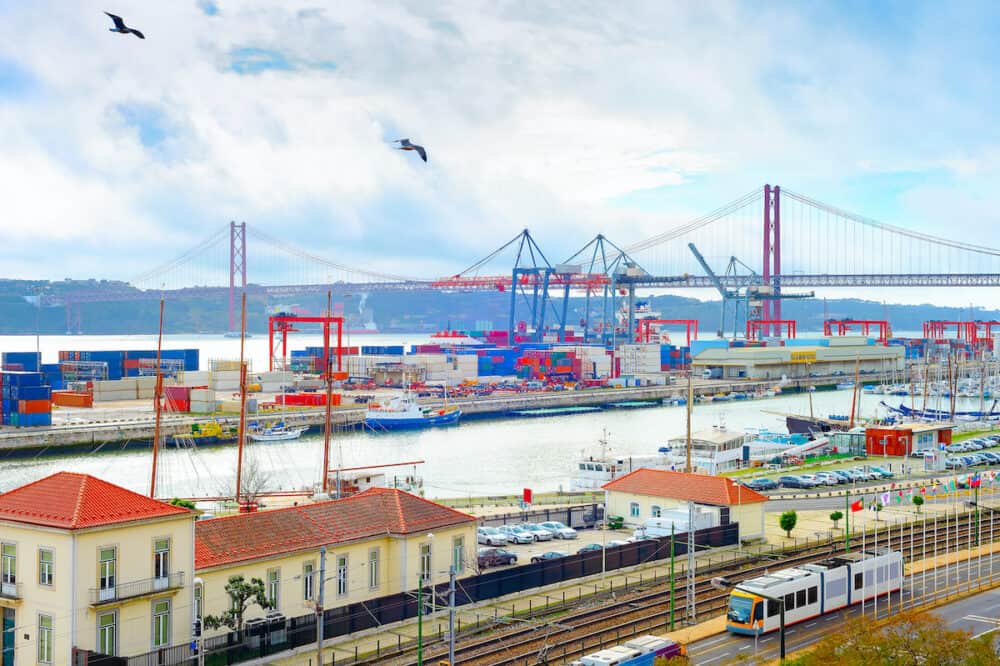
Security & Safety
“Is Portugal a safe place to live?”
The answer is yes! Portugal is often considered a safe and secure country with a relatively low crime rate compared to many other European nations. As I briefly mentioned, it ranked as one of the safest countries in the world.
A couple of reasons for the low crime rate and a good sense of security are political stability, the strong rule of law, effective law enforcement, community policies, social welfare programs, limited gun ownership.
Its resilience to natural disasters, healthcare system, and the tourism-based economy Portugal is well known for.
Pros
- Low Crime Rates:
Portugal generally has low levels of violent crime. Petty crimes like pickpocketing can occur, particularly in tourist areas, but violent crime is relatively rare.
- Safety for Women:
Portugal is often rated as one of the safest countries for women, making it a welcoming destination for female travellers and expatriates.
- Political Stability:
Portugal is known for its political stability, providing a safe environment for residents and visitors.
- Healthcare:
Portugal has a well-developed healthcare system that provides quality medical services. In case of emergencies, you can expect prompt and professional care.
- Natural Disaster Risk:
Portugal is not prone to major natural disasters like earthquakes or hurricanes, which can be a significant safety advantage compared to other countries.
- Police Presence:
There is a visible police presence in most areas, ensuring public safety and helping to maintain order.
Cons
- Petty Crime:
While violent crime is low, petty crimes like pickpocketing and theft can be a concern, particularly in crowded tourist areas.
- Traffic Safety:
Portugal has a relatively high rate of road accidents compared to other European countries. Driving can be aggressive, and road infrastructure in some areas may need to meet the highest safety standards.
- Wildfires:
During the summer, Portugal is susceptible to wildfires, which can pose a safety risk, especially in rural areas and forests.
- Emergency Services Response Time:
While emergency services are generally reliable in remote or rural areas, response times may be longer, so residents should prepare for potential delays.
- Language Barrier:
For non-Portuguese speakers, communication with emergency services and authorities may be challenging in some situations.
- Drug Use:
Like many countries, Portugal faces issues related to drug use and addiction. While this is primarily a public health concern, it can indirectly impact safety in certain areas, especially urban centres.

Accommodation
Are you wondering where to live in Portugal if you decide to move? There are many popular places to reside in, such as Porto, Lagos, Lisbon, the Faro District, Coimbra, Aveiro and Braga.
Accommodation options in Portugal vary widely, from modern apartments in urban centres to traditional homes in rural areas. The availability and quality of accommodation can also differ depending on the region and your budget.
We get many questions from people asking, “Is Lisbon a good place to live?” or maybe, “Is Porto better than Lagos?” but at the end of the day, it all depends on your preference and where you would like to be situated. Are you a city dweller or a coastal lover?
Pros
- Diverse Options:
Portugal offers diverse accommodation options to suit various preferences and budgets. You can find apartments, houses, villas, and historic properties for rent or purchase.
- Affordability:
Portugal generally offers more affordable housing options than many Western European countries, especially in smaller towns and rural areas. Renting or buying property can be relatively inexpensive, although significant cities like Lisbon and Porto tend to be pricier.
- Scenic Locations:
Portugal is known for its beautiful landscapes, and many properties offer stunning views, whether overlooking the sea, in vineyards, or in picturesque villages.
- Cultural Experience:
Living in a traditional Portuguese home, such as a whitewashed cottage or a Quinta (farmhouse), can provide a unique cultural experience, immersing yourself in the local lifestyle.
- Urban Amenities:
Living in a major city like Lisbon or Porto, you can access modern amenities, including shopping centres, restaurants, and entertainment venues.
- Short-Term Rentals:
Portugal is a popular tourist destination, so short-term rental options like Airbnb are widely available, which can be convenient for newcomers searching for long-term accommodation.
Cons
- Housing Shortages:
In major cities like Lisbon and Porto, rental properties can be a shortage, leading to increased competition and potentially higher prices.
- Rental Market Fluctuations:
The rental market in Portugal can be unstable, with prices varying depending on supply and demand.
- Maintenance Issues:
Some older properties may require maintenance and renovations, which can be time-consuming and costly.
- Contract Terms:
Rental contracts in Portugal can be complex, with specific regulations and terms you must understand. Legal assistance may be necessary.
- Language Barrier:
Dealing with real estate transactions and property management may require proficiency in Portuguese. Language barriers can make the process more challenging for non-Portuguese speakers.
- Utility Costs:
While utilities like water and electricity are generally affordable, costs vary depending on the region and the property’s energy efficiency.
- Bureaucracy:
Portugal has some bureaucratic processes involved in property transactions and rental agreements, which may require patience and careful attention to detail.
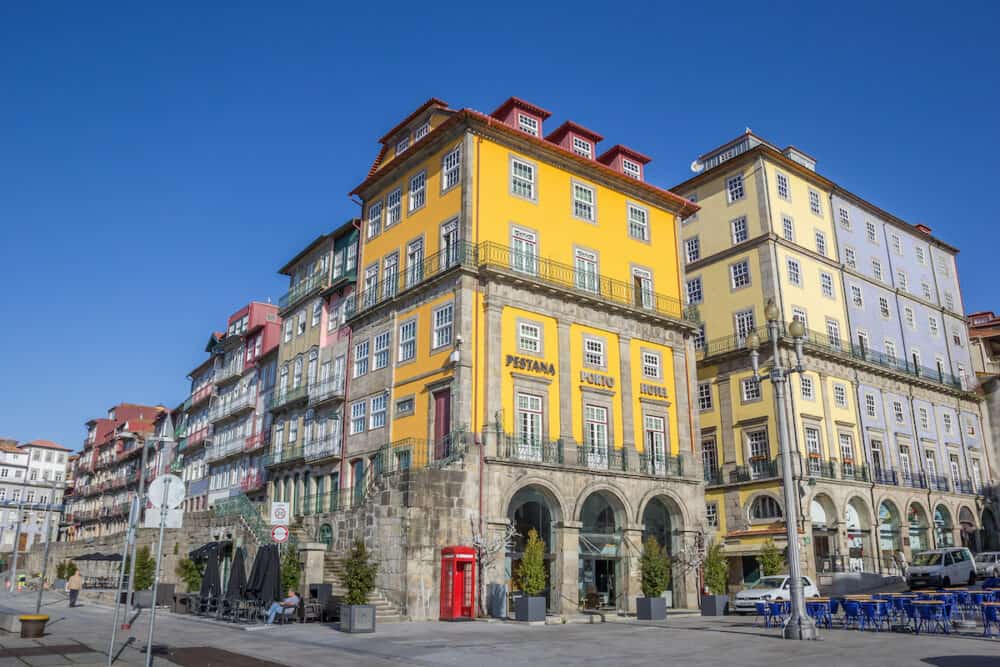
Transport
Transportation in Portugal is generally well-developed and offers a range of options for residents and visitors.
Many people like to use the Metro or rapid transit to get around the bigger cities, whilst others travelling longer distances use the more common form of transport like the train system, Comboios de Portugal.
Pros
- Public Transportation:
Portugal has a well-connected and efficient public transportation system, particularly in major cities like Lisbon and Porto, which includes buses, trams, and metro systems. Public transportation is generally reliable and affordable.
- Extensive Road Network:
Portugal has a modern, well-maintained road network, including highways connecting major cities and regions. These highways are typically toll roads, but they offer efficient travel options.
- Railway System:
The Portuguese railway system is extensive, connecting major cities and regions. High-speed trains like the Alfa Pendular provide efficient connections between Lisbon, Porto, and other cities.
- Taxis and Ride-Sharing:
Taxis are widely available in urban areas, and ride-sharing services like Uber operate in major cities.
- Air Travel:
Portugal has several international airports, with Lisbon and Porto being the largest and busiest. These airports offer good connectivity to other European destinations and beyond.
- Ferry Services:
Portugal’s coastal location means ferry services to nearby islands, such as the Azores and Madeira, and international ferry routes to neighbouring countries like Spain.
Cons
- Traffic Congestion:
Significant cities like Lisbon and Porto can experience traffic congestion, especially during rush hours, which may lead to longer commute times and frustration for drivers.
- Toll Roads:
Many of Portugal’s highways are toll roads, and the toll fees can add up, particularly for frequent travellers. Electronic toll systems are in place, and it’s essential to understand how they work to avoid fines.
- Public Transportation Coverage:
While public transportation is excellent in major cities, it may be less frequent or less comprehensive in rural areas.
- Limited Night Transportation:
Public transportation options, including buses and metros, may have reduced schedules or limited services during the late evening and early morning hours.
- Language Barrier:
Some transportation information, such as signage and announcements, maybe in Portuguese only, which can be a challenge for non-Portuguese speakers.
- Cycling Infrastructure:
While cycling is becoming more popular in Portugal, some cities may need more dedicated cycling lanes and infrastructure, making it less safe for cyclists.
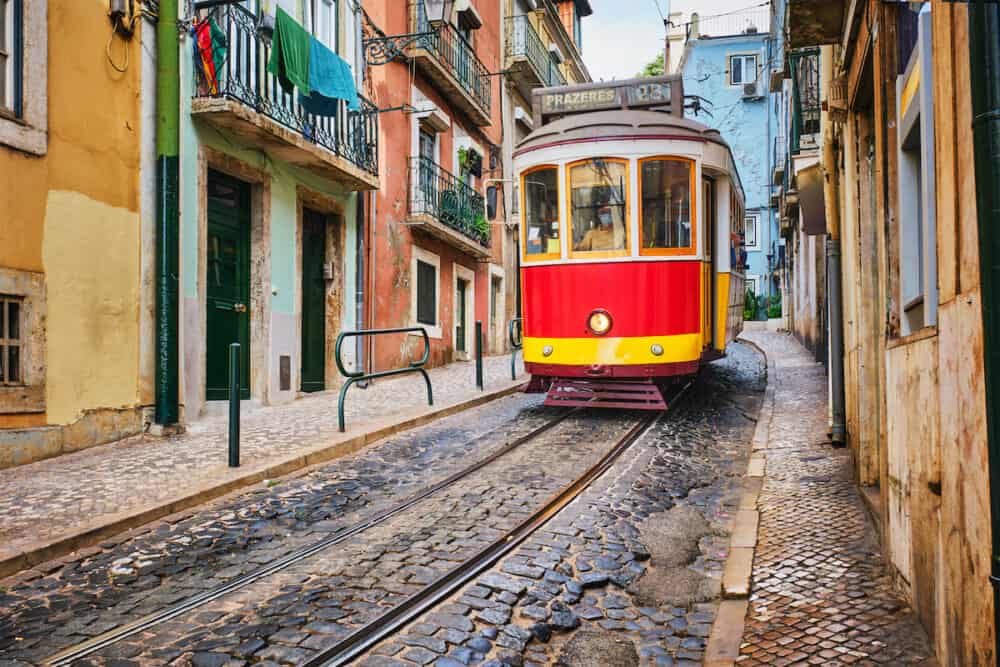
Activities
Portugal offers a wide range of activities to suit various interests.
If you prefer being outside and in the ocean, you will find plenty of surfing, fishing and other water sports activities on most beaches.
If you are more into sporting events, visit the Benfica stadium or watch the races at Portugal’s main track in Estoril. If you are more wellness-based, there are plenty of resorts, spas and yoga retreats nationwide.
Evening activities like gambling and going out are vast, with many choices. The cultural experiences, such as art exhibitions, historical tours and shows, take place throughout Portugal and with much pride.
Pros
- Diverse Landscapes:
Portugal boasts diverse landscapes, including beautiful beaches along the Algarve coast, lush forests in the north, and historic cities like Lisbon and Porto. This diversity allows for various outdoor activities such as hiking, surfing, and exploring picturesque towns.
- Water Sports:
With a long coastline, Portugal is a haven for water sports enthusiasts. You can enjoy activities like surfing, windsurfing, sailing, and scuba diving at various locations along the coast.
- Golf:
Portugal is a popular destination for golfers, with many world-class golf courses in scenic surroundings.
- Cultural Experiences:
Portugal has a rich cultural heritage, and you can explore historic sites, visit museums, attend festivals, and savour traditional cuisine and wine.
- Wine Tourism:
Portugal is famous for its wine, including port wine from the Douro Valley and Vinho Verde from the Minho region. Wine enthusiasts can enjoy tours of vineyards and wine tastings.
- Nature and Wildlife:
The country is home to several national parks and nature reserves, offering opportunities for birdwatching, wildlife observation, and exploring natural wonders.
- Affordability:
Many activities in Portugal are affordable compared to other Western European countries, making it accessible for tourists and residents.
- Festivals and Events:
Portugal annually hosts various festivals and cultural events, celebrating traditions, music, and food from different regions.
Cons
- Seasonal Variability:
Some outdoor activities, such as surfing and beach-related sports, depend highly on the weather and seasons. The winter months may limit specific outdoor pursuits.
- Crowded Tourist Areas:
Popular tourist destinations like Lisbon, Porto, and the Algarve can become crowded during peak travel seasons, impacting the overall experience.
- Language Barrier:
While many Portuguese people speak English, language barriers can sometimes be challenging when seeking information or participating in activities, especially in rural areas.
- Limited Nightlife in Smaller Towns:
In smaller towns and rural areas, the nightlife options may be limited compared to major cities.
- Accessibility:
Some remote or less touristy areas may not be as easily accessible by public transportation, requiring private vehicles for exploration.
- Permit Requirements:
Certain outdoor activities, such as hiking in protected natural areas, may require permits or restrictions, so checking regulations in advance is essential.

The Weather
One of the main reasons why many move to Portugal. Is the Mediterranean climate characterized by mild, wet winters and hot, dry summers?
Just be aware of heat waves, drought and the unfortunate risk of wildfires!
Pros
- Mild Winters:
Portugal experiences relatively mild winters compared to many other European countries. In coastal areas, temperatures rarely drop below freezing, making it a pleasant place to spend the winter months.
- Sunny Summers:
Summers in Portugal are typically hot and dry, with plenty of sunshine.
- Long Beach Season:
Portugal’s long coastline and sunny summers create an extended beach season, making it a popular destination for beach lovers.
- Outdoor Activities:
The pleasant climate allows for a wide range of outdoor activities year-round, from water sports in the summer to hiking and golfing in the winter.
- Wine and Olive Harvest:
The Mediterranean climate is ideal for growing grapes and olives, making Portugal a great place to enjoy wine tasting and witness the annual harvests
- Cultural Festivals:
Many cultural festivals and events occur during the warmer months, allowing residents and tourists to experience Portuguese traditions and cuisine.
Cons
- Summer Heat:
While the hot and dry summers are a pro for many, they can be a con for those who prefer milder temperatures. Inland regions, especially in the south, can experience scorching heat waves during summer.
- Limited Rainfall:
Portugal’s Mediterranean climate means limited rainfall, particularly in the summer, leading to drought conditions in some areas, impacting agriculture and water resources.
- Wildfires:
The combination of hot, dry summers and limited rainfall increases the risk of wildfires, especially in forested regions.
- Tourist Crowds:
During the peak summer season, popular tourist destinations can become crowded, leading to higher prices and longer wait times for attractions and services.
- Winter Rain:
While mild winters can be wet, especially in northern and western regions, this can lead to occasional flooding and road closures in some areas.
- Humidity:
Coastal regions can experience high humidity levels, particularly during the summer.
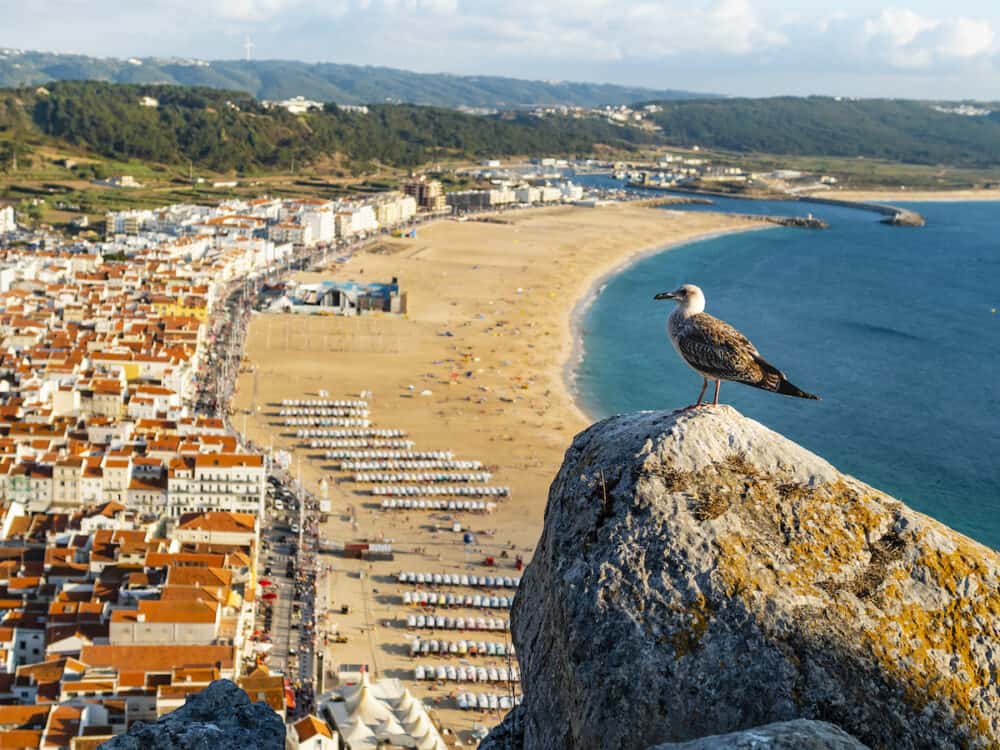
Shopping
Shopping in Portugal offers diverse experiences, from modern shopping centres to traditional markets, making it a varied and rewarding experience for visitors and residents alike.
While there are some challenges, such as limited hours in smaller shops and potential language barriers, the variety of products, affordability, and unique souvenirs make shopping in Portugal an enjoyable experience for many.
Pros
- Variety of Retail Options:
Portugal provides various shopping experiences, from modern malls and department stores to quaint boutiques and traditional markets.
- Unique Souvenirs:
Portugal is known for its crafts and artisanal products, including ceramics, tiles, textiles, and cork goods.
- Fashion and Design:
Significant cities like Lisbon and Porto offer excellent shopping opportunities for fashion enthusiasts. You’ll find both international and Portuguese brands and emerging designers.
- Affordability:
Portugal is often considered an affordable shopping destination, with reasonable prices for clothing, electronics, and everyday items compared to many Western European countries.
- Local Markets:
Portugal’s traditional markets are a treasure trove of fresh produce, seafood, and local delicacies. They offer an authentic shopping experience and the chance to sample regional foods.
- Sales and Discounts:
Like many European countries, Portugal has sales seasons for significant clothing and other goods discounts.
Cons
- Limited Hours:
Some smaller shops and markets may have limited opening hours, with closures during the afternoon for siesta.
- Language Barrier:
English is mainly spoken in urban areas, while smaller shops and markets may need more English-speaking staff. Non-Portuguese speakers may need help with communication.
- Sales Tax:
Portugal has a value-added tax (VAT) applied to most goods and services. Non-European Union tourists may be eligible for VAT refunds, but the process can be complex.
- Tourist Pricing:
In tourist-heavy areas, prices for goods and services may be higher to capitalize on the tourist market. Bargaining is not common in formal shops but is expected in some market settings.
- Parking and Traffic:
Parking in city centres can be limited and expensive, and traffic congestion can make shopping in significant cities less convenient.
- Payment Methods:
While credit and debit cards are widely accepted, some smaller shops and markets may prefer cash payments. ATMs are readily available, but carrying some cash for these situations is essential.
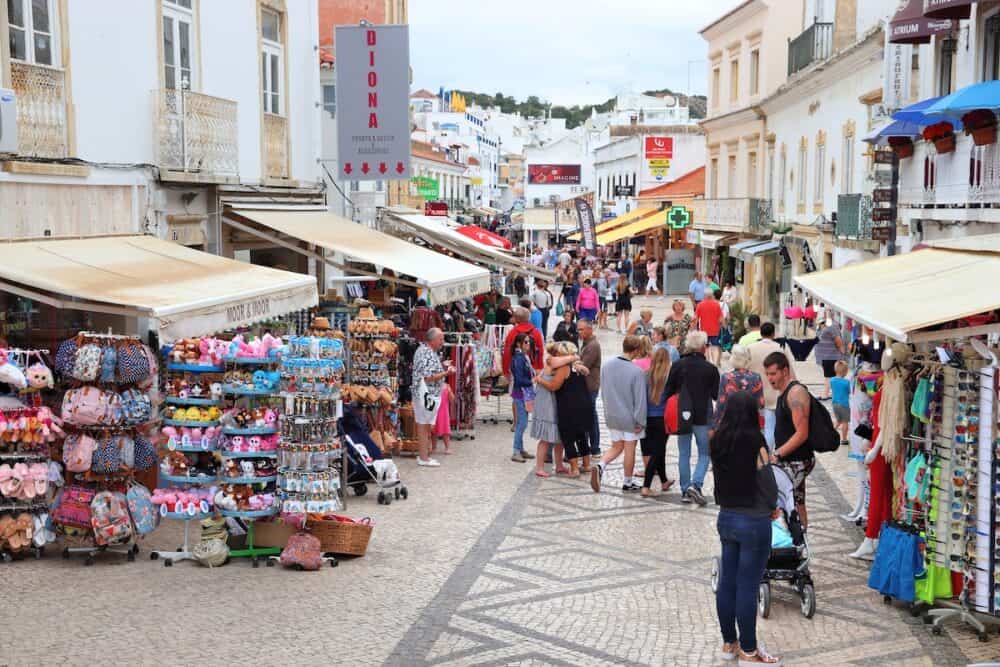
The Community
If you are still left asking, “Is Portugal a good place to live for foreigners?” Then let us help you with a significant factor. Portugal has a large expat community that helps and supports each other, especially those who have decided to take the leap and officially make the move.
So, even though the idea of a language barrier may be troublesome, there are enough expats who have been in the area who can assist.
Many can even help you before making any crazy decisions. Consider contacting someone who has been around for a while and ask them questions like the national health service or local health insurance.
The sense of community in Portugal can vary depending on the region, but in general, Portuguese culture places a strong emphasis on family, social connections, and a warm, welcoming attitude.
Pros
- Warm and Friendly:
Portuguese people are often described as warm, friendly, and welcoming. They are known for their hospitality and are generally open to forming new social connections.
- Strong Family Ties:
Family is highly valued in Portuguese culture. You’ll find that many social events and gatherings revolve around family, creating a sense of unity and support.
- Festive Culture:
Portugal has a rich cultural calendar filled with festivals, celebrations, and local traditions. These events provide opportunities for community engagement and socializing.
- Café Culture:
Portugal has a strong café culture where locals gather at cafes and eateries to socialize, enjoy coffee, and watch the world go by. This encourages social interactions and a sense of belonging.
- Expat Communities:
There are established expatriate communities in popular expat destinations like the Algarve, Lisbon, and Porto. These communities can provide support and opportunities to connect with fellow expats.
- Affordable Living:
The relatively affordable cost of living in Portugal can make engaging in social activities, dining out, and exploring the local culture more accessible without breaking the bank.
Cons
- Language Barrier:
While English is commonly spoken, especially among the younger population and in urban areas, there may still be language barriers, particularly in rural regions. This can limit the depth of social connections for non-Portuguese speakers.
- Reserved in Some Areas:
While Portuguese people are generally friendly, some regions may have a more reserved or conservative attitude, which could affect social interactions for newcomers.
- Work-Life Balance:
In some sectors and professions, long working hours and a strong focus on work can limit opportunities for socializing during the workweek.
- Cultural Differences:
As in any country, social interaction can have cultural differences and nuances. Understanding and respecting local customs and traditions is essential for forming positive connections.
- Limited Diversity:
Portugal has become more diverse in recent years due to immigration, but it remains less ethnically diverse than some other Western countries. In smaller towns and rural areas, you may need more diversity.
- Size of Communities:
Smaller towns and villages may have limited community resources and social activities compared to larger cities, which can impact social opportunities.
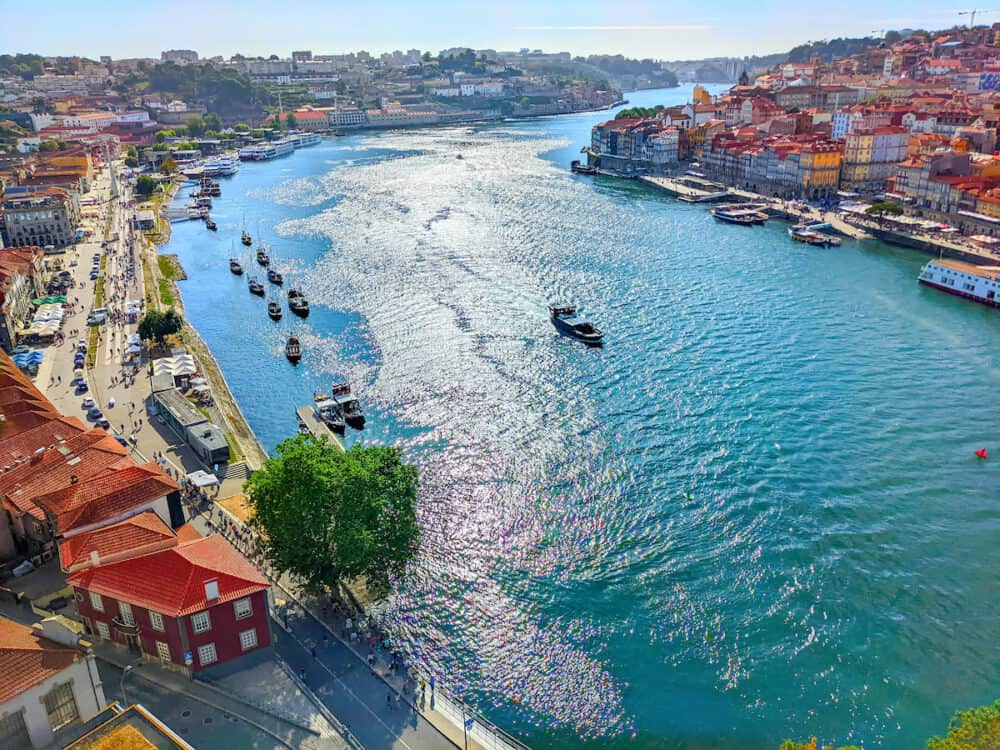
Retirement
Retiring in Portugal is an attractive option for many people (Especially British and South Africans) for many reasons mentioned above, but there are some things to consider.
Pros
- Pleasant Climate:
Portugal enjoys a Mediterranean climate with mild winters and hot summers, making it an ideal destination for those seeking comfortable weather year-round.
- Affordable Cost of Living:
Portugal offers a relatively affordable cost of living compared to many Western European countries. Housing, healthcare, and everyday expenses can be budget-friendly, especially in smaller towns and rural areas.
- Healthcare:
Portugal has a high-quality healthcare system, and residents have access to medical care at an affordable cost. Expatriates can often join the healthcare system by paying a monthly fee.
- Safety:
Portugal is considered one of the safest countries in Europe, with low crime rates, making it an appealing choice for retirees.
- Scenic Beauty:
Portugal boasts diverse landscapes, including stunning coastlines, picturesque villages, and lush countryside. It’s an excellent place for retirees who enjoy outdoor activities and natural beauty.
- Cultural Richness:
Portugal has a rich cultural heritage, with historic cities, festivals, and traditions to explore where retirees can immerse themselves in the local culture and history.
- Tax Benefits:
Portugal offers attractive tax incentives for retirees, including the Non-Habitual Resident (NHR) tax regime, which can reduce taxes on foreign income for eligible retirees.
- Resident-Friendly Policies:
Portugal has policies that are welcoming to retirees, such as the Golden Visa program for real estate investment and various options for obtaining residency or citizenship.
Cons
- Language Barrier:
While English is widely spoken, especially in urban areas, there may still be language barriers in smaller towns and rural regions, which can impact daily life.
- Bureaucracy:
Dealing with administrative processes in Portugal can be time-consuming and occasionally frustrating for expatriates, particularly regarding legal and bureaucratic matters.
- Limited Job Opportunities:
For retirees who wish to work part-time or start a business, job opportunities may be limited, especially if you don’t speak Portuguese fluently.
- Healthcare Waiting Times:
While the healthcare system is generally efficient, waiting times for non-urgent procedures or specialist appointments can be longer in some areas.
- Real Estate Market:
The real estate market can be competitive in popular expat destinations like Lisbon and the Algarve, leading to higher property prices in desirable areas.
- Tourist Crowds:
Some famous tourist destinations can become crowded during peak travel seasons, which may impact the overall quality of life for retirees living in these areas.
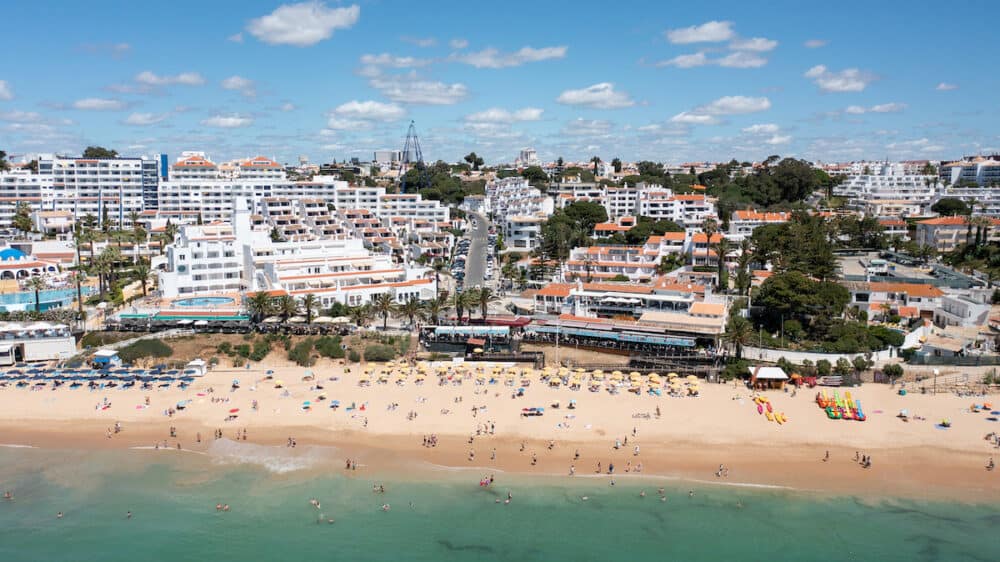
FAQs About why is everyone moving to portugal
is it expensive to live in portugal?
Living in Portugal is relatively inexpensive, especially compared to its neighboring countries across Europe. The cost of living in Portugal is generally lower than that of other European countries, and wages are usually higher for the same jobs.
For those looking to stay long-term in Portugal, rental costs can be quite reasonable. Additionally, if you take advantage of local grocery stores and markets, you can save more money by getting your food locally instead of eating out often.
There are also plenty of affordable activities like going to the beach or exploring Portugal’s many quaint towns and villages, all without breaking the bank.
is portugal a good place for americans to live?
Portugal is an amazing place for Americans to live. It offers a great quality of life, with gorgeous beaches, delicious food, and friendly people.
The cost of living is relatively low compared to the United States, so it’s an attractive destination for those looking to stretch their budget. Portugal also has many cultural attractions such as monuments, museums, galleries, and more.
There are plenty of activities available in the great outdoors too – from surfing to hiking – so you won’t get bored! All in all, Portugal is a great choice for those looking for a change in scenery and culture.
why is portugal a good place to retire
Portugal has a variety of benefits that make it an ideal retirement destination. Most significantly, the country offers a good quality of life for retirees, with warm weather, beautiful landscapes and friendly people.
It also boasts one of the lowest costs of living in Europe, making Portugal an attractive place to retire for those looking to live on a budget.
The country also has excellent public healthcare facilities and many senior discounts for activities like public transportation and dining out. All in all, Portugal is an ideal location for retirees who wish to enjoy their golden years in comfort and safety.
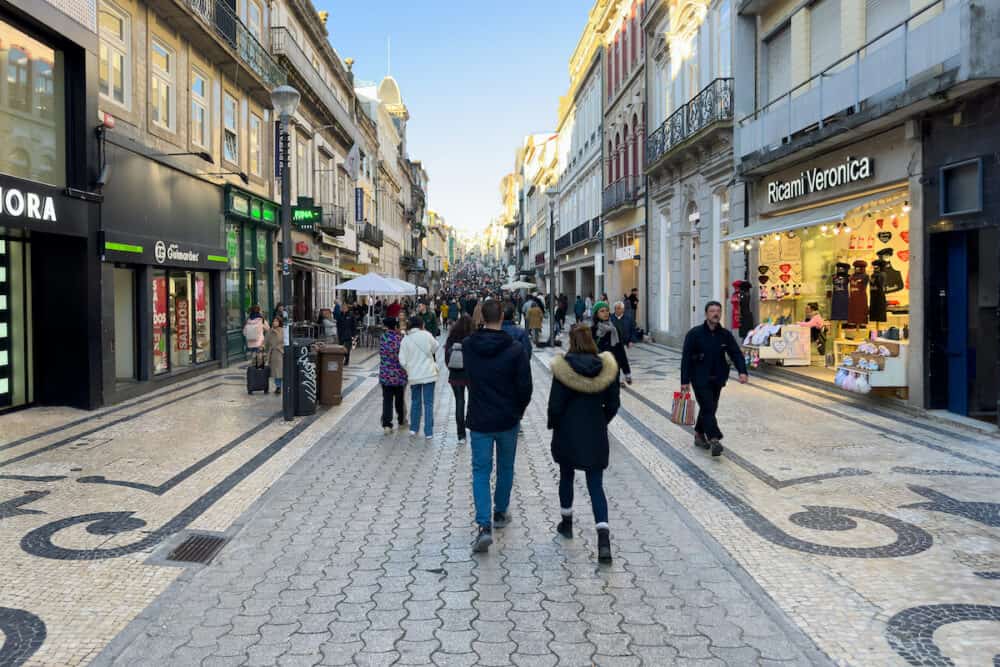
Final Thoughts: living in portugal pros and cons
“Is Portugal a good country to live in?”
Overall, it is a great choice and a beautiful, all-rounder location. You have to remember that every one of us is different.
You may find that you have other pros and cons of living in Portugal, so it is crucial to research, talk to someone who has made a similar move to the one you are planning and create personal comparisons on your expectations versus what you will get realistically.
Read more:



